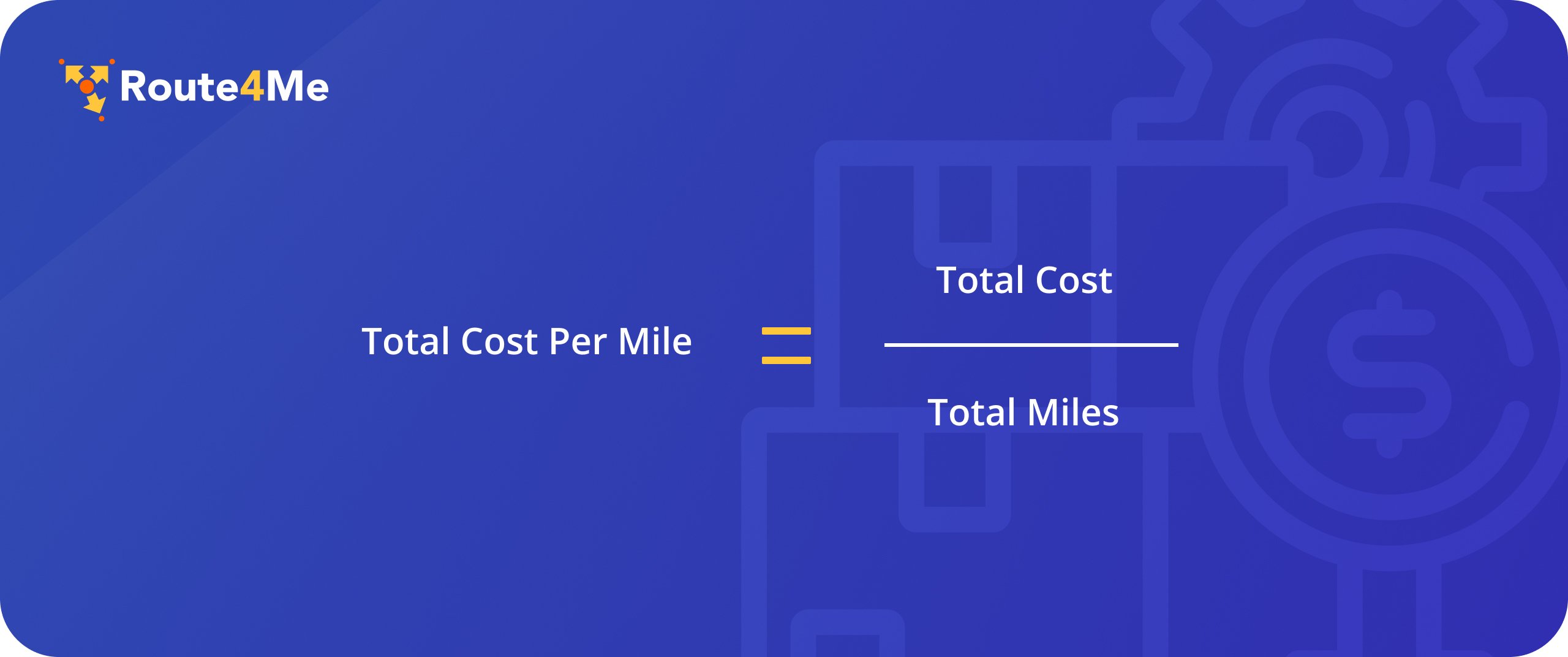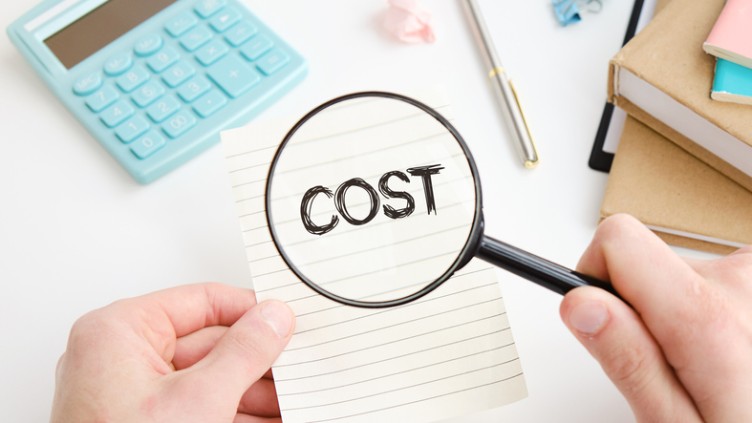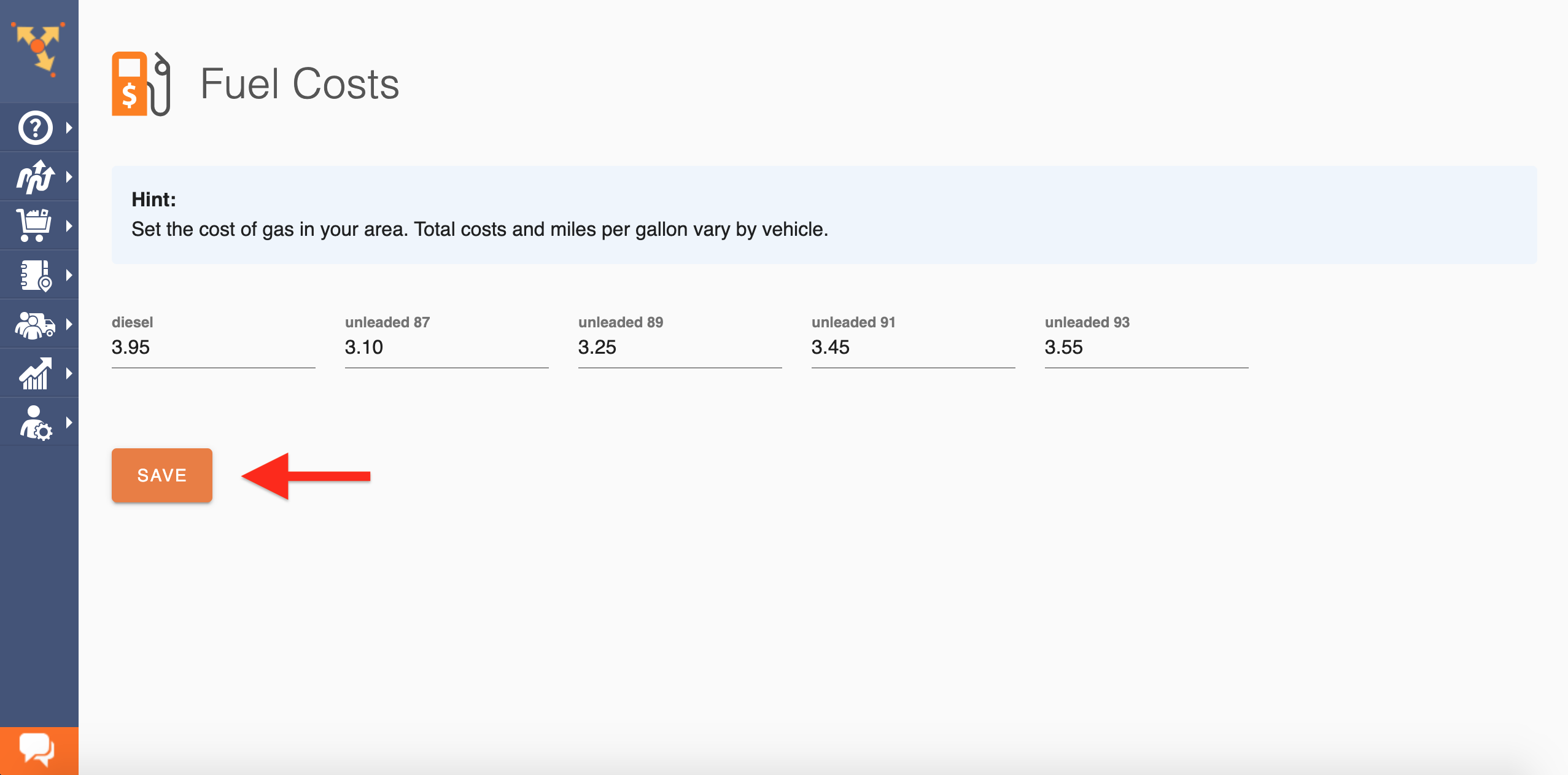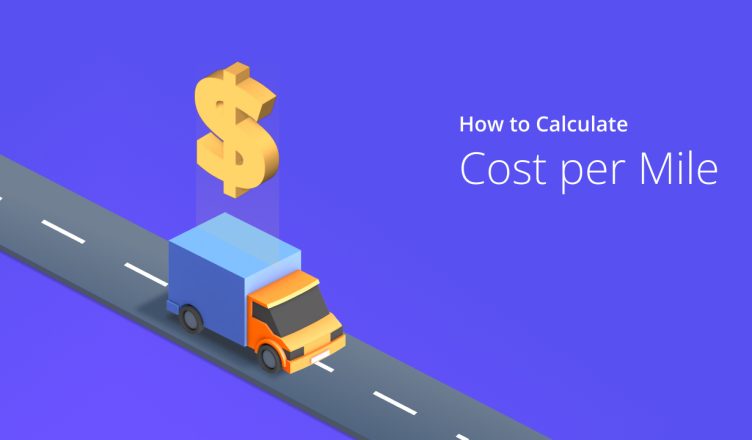Cost per mile calculation is the most critical financial calculation you must perform for your field service or delivery business. Even if you’re an independent courier, you drive for Walmart or would like to become an Amazon Flex delivery driver, this calculation can benefit you.
It can be tiring at first, but it’s pretty simple.
You don’t need a fancy cost-per-mile calculator. You just need three simple steps covered in this short read.
Table of Contents
Why Should You Calculate Cost Per Mile?
Here’s why you should learn how to calculate cost per mile:
- It can indicate whether you’ll make a profit based on the current rates you are being paid.
- It informs your business’s performance and helps you make better business decisions.

- It’ll show if you should take a load or not.
- You can see your spending patterns.
- You can see where you need to cut costs.
- It helps you arrive at a fair transportation price to avoid losing money on a load.
Get These Details Ready Before Calculating Cost Per Mile
To calculate the cost per mile of your field service or delivery business, you’ll need to get the following items ready:
- All your expense receipts for the month are under consideration, including fuel purchases and food costs.
- All your bills, including truck payments, health insurance, and auto insurance.
- Your odometer reading from the beginning and end of the month. That’ll show you your total miles.

How Do You Calculate Cost Per Mile?
You’re basically calculating how much you need to spend to cover one mile. Here’s a simple formula:
Total cost/Total miles = Total cost per mile

Below are three simple steps you can use to calculate your cost per mile to drive.
Step #1. Calculate Your Total Cost
Your total cost is made up of three costs:
- Fixed costs
- Variable expenses
- Salary costs
Fixed costs are costs you incur, even if your vehicles are not running. They include license plates or vehicle registration fees, truck payments, and insurance.
Variable costs are costs you incur based on how much load you deliver or the scale of your delivery business. These costs directly affect your business. They include broker fees, cost of gas per mile, meals, repairs and maintenance, and tires.
Salary costs significantly impact cost per mile, so it deserves a category. Salaries are the highest recurring or variable costs, including wages, payroll fees, employee benefits, and employment taxes.
To get your total costs, you simply sum up all your costs:
Fixed costs + variable expenses + salary costs = Total cost
To understand the concept better, let’s put some numbers to it.
For example, let’s say the followings are your fixed costs for January 2022:
License plates: $100
Truck Payments: $2,500
Insurance (including occupational accident insurance and worker’s comp): $800
Total Fixed Cost: $3,400
Now, let’s say these are your variable costs in January.
Fuel costs: $3,000
Meals: $400
Broker fees: $50
Repairs and Maintenance: $1,500
Miscellaneous expenses (permits, tolls, etc.): $250
Total Variable Cost: $5,200
And below are your salary costs for January.
Wages: $2,500
Payroll fees: $300
Employee benefits: $400
Employment taxes: $200
Total Salary Cost: $3,400
TOTAL COST: $12,000
Step #2. Calculate the Total miles
The odometer records the distance traveled (in miles) by each vehicle. The information obtained from the odometer helps you figure out how many miles you drive in a given period (say one month).
To calculate the total miles, use this simple formula:
Odometer reading at the end of the month – Odometer reading at the beginning of the month = Total miles
Let’s assume the total miles for January 2022 were 11,500.
Step #3. Calculate Cost Per Mile
Now, it’s time to calculate the cost per mile using the formula at the beginning.
Here’s your data from January 2022:
Total cost = $12,000
Total miles = 11, 500 miles
Cost per mile = 12000/11500= $1.04 per mile.
This means your spend $1.04 for every mile you cover.
Want To See For Yourself How Route4Me Can Boost Your Profits?

How to Calculate Operating Cost Per Mile Efficiently?
You should calculate your cost per mile for your first three months, then your first six months, and finally at the year’s end. If you’ve been in business for more than a year, you should calculate the cost every six months.

As you can see, the calculation is pretty straightforward. There’s no complex mathematics, just simple arithmetics.
How to Reduce Your Cost Per Mile?
It’s hard to reduce the operating expenses that impact your cost per mile driven. However, you can make significant savings by adopting the right strategy and tools. For example, using an advanced route planner like Route4Me can reduce your fuel expenses significantly.
Below are the top three ways in which Route4Me can help you reduce your fuel and transportation costs:
Plan Well-Optimized Routes
Route4Me’s multi-stop route planner comes with Dynamic Route Optimization™ technology that helps you plan fuel-efficient routes in seconds.
The software even considers weather, traffic, roadblocks, delivery time windows, sunrise and sunset times, and many other factors while planning your routes.
Plus, the route planner ensures your vehicles are adequately loaded so that your engines don’t stretch beyond their capability and burn excessive fuel.
All this means that your drivers will never get stuck on the road, always make on-time deliveries, and cover more stops with the least fuel consumption. This will reduce your cost per mile driven.
Track Fuel Expenses
Route4Me’s vehicle routing software comes with a reporting and analytics feature that helps you track fuel consumption and driver performance.
You can see the total gas cost, average trip gas cost, average savings, and more. Plus, you can define a custom price for each fuel type and then monitor the fuel expenses for a particular vehicle to drive from one stop to the next one.
Learn in detail how to save money on gas.

Reduce Aggressive Driving
According to a study by researchers at the Department of Energy’s Oak Ridge National Laboratory, aggressive driving can reduce gas mileage by up to 40% in stop-and-go traffic and up to 30% at highway speeds. This equates to losing up to a dollar per gallon.
Route4Me’s delivery route planner comes with a GPS tracking feature that helps you track your vehicles on the road in real-time. In addition, it offers a speed alert. So, if any driver speeds, you’ll be notified and can immediately contact the driver to rectify the behavior.
Learn how to reduce aggressive driving.
Also, you can ensure your drivers don’t drive off the route, make unnecessary stops, or idle vehicles unnecessarily, which could also increase your fuel expenses.
The best part is that Route4Me’s delivery scheduling software comes with a seven-day free trial to help you test the software with zero obligations. So, sign up now and see how Route4Me can help you lower your cost per mile significantly!
Want To See For Yourself How Route4Me Can Boost Your Profits?

